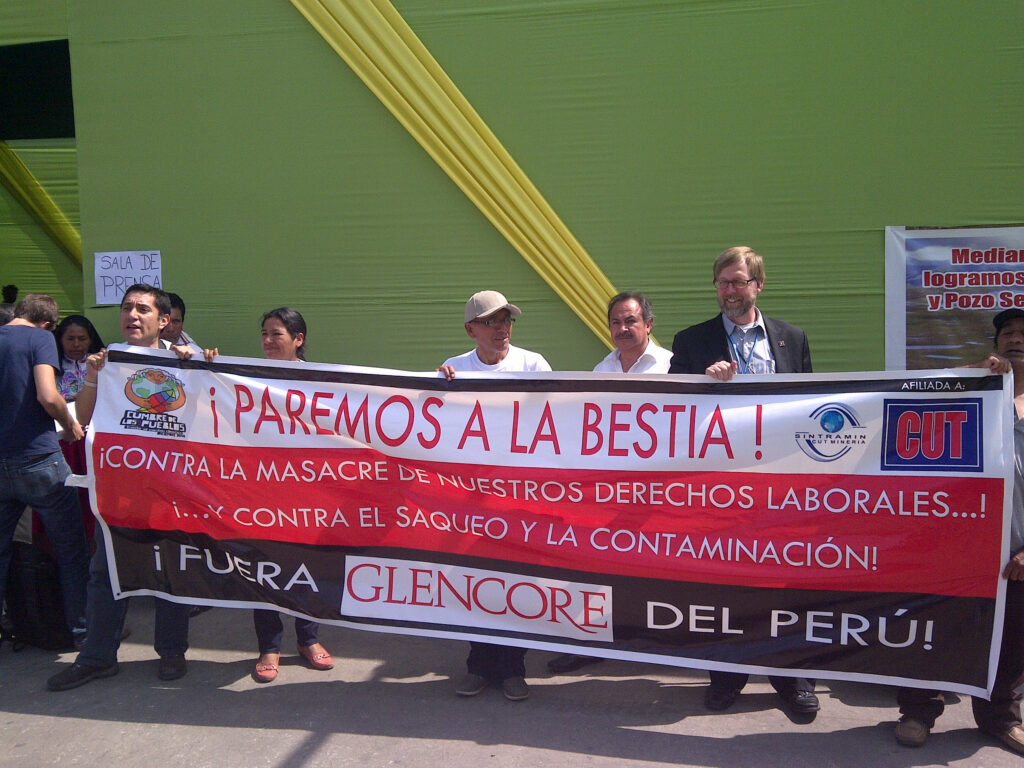19 December, 2014There was a bitterly disappointing end to the 20th Conference of the Parties to the United Nations Framework Convention on Climate Change (COP20) on 13 December in Lima, Peru. After two weeks of intensive negotiations, the ambition to hold temperature rises to 2C all but vanished and trade unions' demands for a Just Transition to a sustainable future were ignored.
The Lima COP was never expected to be a deal-maker; but it was expected to generate the outlines of a deal to be finalized in Paris, a year from now, at COP21. What the world got is only a very weak framework with many blanks to be filled in if anything meaningful is to be signed in Paris next year.
The biggest divide remains between developed nations and developing nations. Some non-EU developed countries, led by the USA, are trying to trash a previously agreed-upon principle known as "common but differentiated responsibilities and respective capacities" which recognizes that developed countries should take the lead, since they have a historical responsibility for most of the greenhouse gases in the atmosphere and have the greatest capacity to act. On finance, developed countries want to dictate what projects are supported by the Green Climate Fund rather than allow developing countries to decide their priorities. Also, there is a general backing away from the aim of a binding agreement towards "Intended Nationally Determined Contributions" - basically voluntary, non-binding national commitments that will be non-transparent and impossible to audit.
In the midst of these complicated talks, the trade union delegates attempted to maintain at least some focus on the social dimension of sustainability, but a pattern has developed over the last several COP meetings. At each COP, with intense effort, trade unions have generally succeeded in getting a paragraph or two on decent work, greener jobs, and Just Transition in the text. Then, when the next Conference of the Parties arrives, our text has been deleted and we must fight for it to be re-inserted. Leaving aside the complex reasons for this, the Lima talks have been no exception to this pattern.
As the talks close, we have mention of our social demands in only one place, a document called Response Measures. This is better than nothing, but a small victory indeed. That is because there is some opposition to the entire Response Measures text and there is no guarantee that it will survive the run-up to Paris and COP-21. We need social standards, decent work and Just Transition recognized in the main negotiating text to have a little confidence that they will not simply be tossed aside.
COP-21 in Paris near the end of 2015 will be a crucial moment for the world. Although the warnings of dangerous global warming have been sounded since at least the late 1980s, the world has done very little and now time has effectively run out. Absent a meaningful deal in 2015, preventing catastrophic climate change will not realistically be possible with existing technologies. The fate of our world will then depend on technologies that do not exist yet, or are unproven.
As IndustriALL Global Union’s general secretary, Jyrki Raina has stated, climate change threatens everything the labour movement stands for. There are two possible disaster scenarios, not one.
The first, most often discussed, is that catastrophic climate change wreaks havoc with the world's species and spaces, and renders large areas of the planet uninhabitable.
The second, less discussed, is that in a last-minute panic to avert the first scenario we are forced to accept draconian measures that bulldoze human rights, workers' rights, and indeed basic human dignity. In this scenario we may save the ecosystem but end up enslaved to the few trillionaires that have devised safe havens for their wealth.
The only way to avoid either of these becoming our future reality is to build a Just Transition - a bridge to a sustainable future that respects and protects today’s workers, creates opportunities for tomorrow's, and insists on human rights, social standards, and human dignity. It will not be given to us. We will have to fight for it - fight against powerful entrenched forces and ideologies.
2015 will be a year of struggle to win a decent future for today's and tomorrow's citizens of planet earth.
